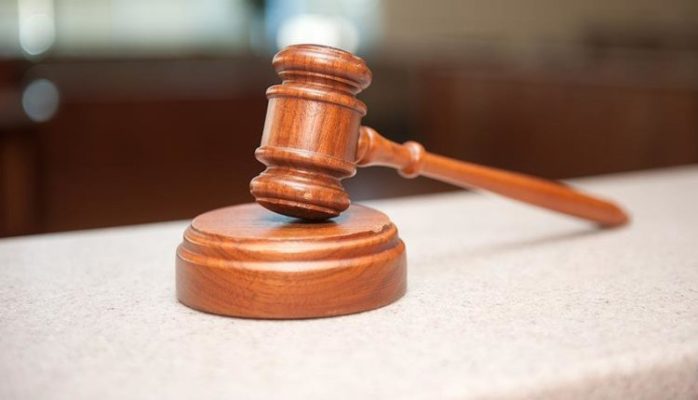Two businessmen; Teniola Adesanya and Goodluck Olatunde, have filed a N1 billion suit against the Inspector-General (I-G) of Police and six others over allegations bordering on unlawful arrest and detention.
The suit, marked: FCT/HC/CV/3237/2024 was filed at the High Court of Federal Capital Territory (FCT) by their lawyer, Mr. B. S. Akinwumi.
The applicants; Adesanya and Olatunde, are suing along with the companies – Oxford International Group Limited, Oxford Gold Integrated Ltd, Oxford Green Farms Ltd, Oxford Real Estate and Facility MGT Ltd and Oxford Commercial Services Ltd.
They sued the I-G, the Nigeria Police Force (NPF), DIG Habu Sabi, ACP Mohammed Lawan, the Economic and Financial Crimes Commission (EFCC) and the Dangote Group Staff Multi-purpose Cooperative Society Ltd.
In the fundamental rights enforcement suit, the applicants stated that they had operated smoothly and met their investors’ expectations.
They also stated that they had ensured returns on their investments until when they had an issue with the Security and Exchange Commission (SEC).
They stated that during the dispute with SEC, their businesses were hampered, which made it difficult for them to pay their investors, including the Dangote Group Staff Multi-purpose Cooperative Society, what was due to them as and when due.
The applicants added that while efforts were on to resolve their issue with the SEC, some of their investors panicked and petitioned the NPF, which led to their earlier arrest and detention along with some of their staff members.
They stated that, while the dispute with SEC was resolved via a consent judgment of the Federal High Court, in which their companies were directed to pay only the investment sum to their investors without any interest, police’s investigation also showed that they committed no criminal offences.
The applicants noted that not only did the consent judgment showed that the whole issues were commercial in nature, police investigation
on the complaints by some of their investors also showed that the transactions had no criminal elements.
The investigation report, released by the NGF, dated July 27, 2023 and signed by DCP Tahir Usman of Force Criminal Investigation Department (FCID), Abuja, which is attached to the suit, showed that the transactions had no criminal elements.
Part of the findings in the report reads: “The entire case wes based on contract which is purely civil in nature.
“The police has no legal backing to delve into matters that are purely civil in nature, moreso a case that a court of competent jurisdiction had ruled that the company makes refund to its investors without delay.
“It is worthy of note that as at the time of going into the contract between the parties there was no criminal intention, it was purely a profit making venture.
“The police as an organisation, should not allow itself to be used in civil matters, more especially where financial transaction are involved and no traces of elements of crime.”
The applicants, however, stated that despite the consent judgment, which they had continued to comply with, and the findings in the police reports, some officials of the security outfit continued to harass and threaten them with arrest and further detention.
READ ALSO:
- Financial Adviser Geh Geh Splashes Millions On Brand New G-Wagon
- Nigerian Politicians Should Wear Traditional Attire Abroad — Ebuka Obi
- Congratulations Pours Human AI Jadrolita Becomes Samsung’s Physical Robot
- FG targets 2027 to migrate fully to computer-based exams
- FG directs WAEC, NECO to inscribe NIN, DoB, photo on certificates
They, therefore, prayed the court to among others, intervene and grant all the reliefs they sought to ensure that the NPF, its officials and the EFCC “do not abuse their investigative and prosecutorial powers.”
They sought an order of perpetual injunction restraining the I-G and other respondents from continuing to invite them, harass them and threaten to arrest and detain them over the same transactions with their investors.
They equally sought an order directing the respondents, except the EFCC, to pay to them N1 billion as damages for the breach of their fundamental rights, among others.(NAN)


